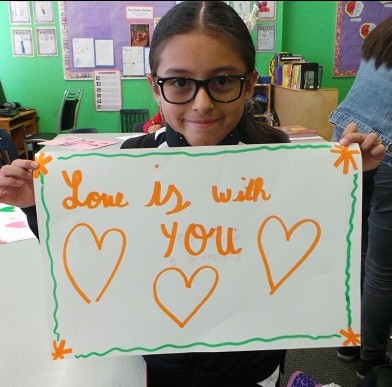Instead of using modern science to study hardship--all those negative emotions--can we use those same tools to study compassion?
As many of you know, the world recently celebrated the 80th birthday of His Holiness the 14th Dalai Lama at the Global Compassion Summit. Play for Peace was thrilled to be there, soaking in the opportunity to both teach and learn about compassion. As the HHDL80 website boasted, “Compassion is the Ultimate Birthday Present.” (Home Page, 2015). In the spirit of these events, which took place from July 5 - 7, we thought we would explore some of the research around compassion. In a recent article in The Atlantic, author Kathy Gilsinan discusses an interaction between the Dalai Lama and neuroscientist Richard Davidson. This was in 1992, and Davidson had been studying the relationship between resilience and tragedy: why, he wondered, can some folks face tragedy, while others are overwhelmed by it? (Gilsinan, 2015).
The Dalai Lama proposed something else: instead of using modern science to study hardship--all those negative emotions--can we use those same tools to study compassion? Davidson was up to the challenge: curious about the effects of compassion on the brain, he brought a group of Buddhist monks into his lab and studied their brain activity. These monks, having undergone thousands of hours of mental training, were asked to oscillate between neutral and meditative states, the former described as a space for love and compassion (Gilsinan, 2015). Davidson was excited by the scans: these brains demonstrated more plasticity, suggesting that they could be more adaptable or even resilient. (Gilsinan, 2015).
Increased activity in an area of the brain that deals with brain-body coordination was also present. This suggests that compassion and mindfulness might have health benefits.
'Davidson and coauthors found in another study that meditation improved immune response to an influenza vaccine—and the subjects were not “professional” Buddhist meditators, but people who had gone through an eight-week training program in mindfulness meditation.' (Gilsinan, para. 6, 2015).
What emerged concretely was that acts of generosity activate positive-emotion circuits in the brain. (Gilsinan, 2015).
The research may not be finished: neuroscientists are making discoveries on a regular basis (a quick trip to the amazing TED.com is proof of this). But we don’t have to wait for the research to practice compassion. Looking for some life changes? Be grateful, and be generous. Have a friend in need? Reach out, and help out. See where it takes you.
REFERENCES
1. Gilsinan, Kathy. (2015, July 4). "The Buddhist and the Neuroscientist: What Compassion Does to the Brain.” The Atlantic. Retrieved from:
http://www.theatlantic.com/health/archive/2015/07/dalai-lama-neuroscience-compassion/397706/
2.HHDL80. (2015) “Celebrate with his Holiness the 14th Dalai Lama”. HHDL80, Home Page. Retrieved from: http://www.hhdl80.org



